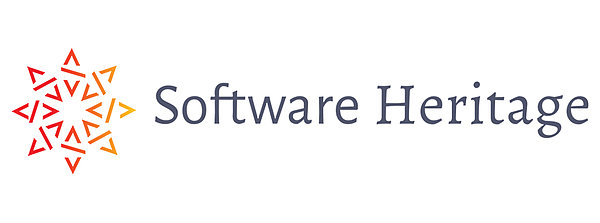Préserver les codes source et logiciels : Software Heritage
14 juin 2022, 14h, LILLIAD
La Fabrique de la science ouverte vous invite à découvrir Software Heritage.
Le logiciel est devenu un support indissociable des connaissances techniques et scientifiques. La préservation de cet ensemble universel de connaissances est aussi importante que la préservation des articles de recherche et des ensembles de données. Dans la quête de rendre les résultats scientifiques reproductibles et de transmettre les connaissances aux générations futures, nous devons préserver ces trois principaux piliers : les articles de recherche qui décrivent les résultats, les ensembles de données utilisés ou produits et le logiciel qui incarne la logique de la transformation des données.
Il est essentiel d'archiver, identifier, décrire et citer le code source pour la science ouverte, mais comment le faire ?
Nous allons découvrir 4 cas d’utilisation indispensables pour déchiffrer le dépôt logiciel et les bonnes pratiques associées à chacun :
- Archiver le code source dans HAL et sur Software Heritage, une action nécessaire pour assurer l’accessibilité au long terme.
- Identifier la version spécifique avec un identifiant intrinsèque, une première étape pour conquérir le de défi de la reproductibilité
- Décrire le code source pour une meilleure compréhension du logiciel et pour permettre la découverte du logiciel sur des moteurs de recherche.
- Citer le logiciel pour attribuer le crédit aux auteurs dans l’écosystème académique.
Biographies
After several years as a professional harpist Morane Gruenpeter found a new career path in software engineering. Morane joined the Software Heritage team in 2017 while finishing a Master’s degree in Computer Science at the Pierre et Marie Curie University. During 2018-2019 she continued her research in collaboration with the European EU2020 CROSSMINER project on the software metadata challenge by building the Semantic Web of FOSS projects in the Software Heritage archive. From 2019 to 2022 She represented Inria on the the EU project FAIRsFAIR and now she is task lead on both EU projects FAIRCORE4EOSC and FAIR-IMPACT. Morane is leading different projects in Software Heritage, including the ambassador program and also the Software Stories project.
She is an active member of several working groups for Open Science and digital preservation, including: the Research Data Alliance’s Software Source Code interest group and FAIR for Research Software WG, the FORCE11’s Software Citation Implementation working group and the WikiData for Digital preservation working group.
Alexis Lebis a lecturer in artificial intelligence at the Center for Digital Systems (CERI SN) of Institut Mines Télécom Lille Douai, in France, since 2020. Before that, he was a post-doctorate for the APACHES (FIPE18-007-VERMEULEN) project.
His research is mainly focused on Decision Making (DM) and Knowledge Engineering (KE), especially applied to Technology Enhanced Learning (T.E.L) for now. He is interested in providing educational stakeholders with new decision-making tools for complex pedagogical situations, adapted to the always-changing education context. As such, Alexis works particularly on modeling complex (and combinatorial) TEL problems, understanding their topology, and solving them by using different approaches, such as constraint-based meta-heuristic.
Alexis is also very interested in reproducible science, and how we can foster it in T.EL., and more generally in computer science fields. His Ph.D. thesis laid mostly into this problem, heavily relying on KE and web semantics. And so, to continue on this reproducibility concerns, he became an ambassador of the Software Heritage archive.
He also has an interest in various little funny things, like games, game AI problems, hiking, kendo, science popularization, climbing, trees and plants, music, teaching...


Cet événement a reçu le label "Printemps de la donnée" (INRAE)